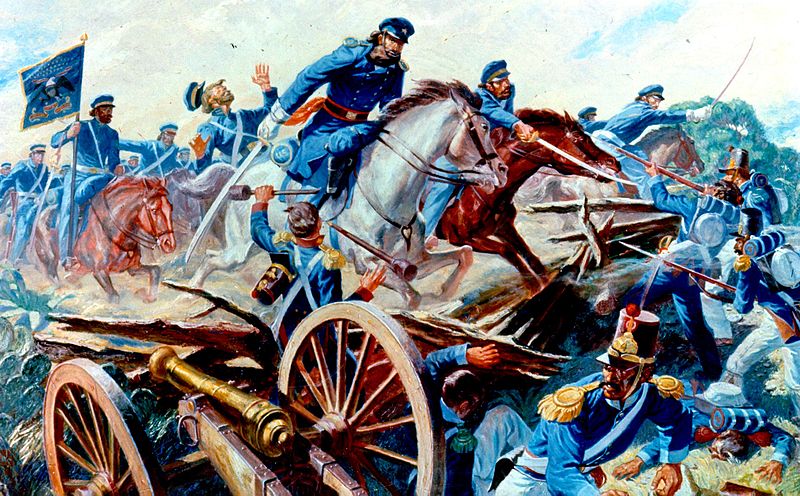- 14 3402-5578
- Rua Hygino Muzy Filho, 737, MARÍLIA - SP
- contato@latinoobservatory.org
 U.S. Army in Action Series - Paintings commissioned by the United States Army
U.S. Army in Action Series - Paintings commissioned by the United States Army
A new report from the Johns Hopkins Institute for Education Policy and UnidosUS has revealed that most of the important historical events that impacted Latinos in the United States are not covered in high school history textbooks. The study found that 87 percent of major Latin topics are not mentioned in books or are mentioned in only five or fewer sentences.
This means that many crucial aspects of Latin history, such as the Mexican-American War, the Spanish-American War, the U.S. acquisition of Puerto Rico, the Panama Canal, the modern civil rights movement, and important legal developments, are left out of educational materials. The research analyzed five U.S. history textbooks used in seven states and one U.S. history book from the advanced level (AP) program, examining the depth of content, the balance between discussions of inequality and Latino contributions, the use of language, and the authenticity of the images.
The researchers found that coverage of early Latin American events to date was the most limited, with a score of just 0.1 out of a maximum of three. The appointment of Sonia Sotomayor as the first Latino justice of the Supreme Court was the only event in the last 200 years mentioned in every book as a pivotal Latino moment.
The report issued recommendations, including the need to develop textbooks that fully address the experiences of Latinos by incorporating rigorous content and primary and secondary sources. In addition, it urged teachers, parents and community leaders to advocate for more inclusive curricula and to engage with school staff and boards to drive change.
The proper inclusion of the Latino experience in education is considered essential to creating a society that values the contributions and experiences of all Americans, especially the nation's largest racial/ethnic minority. Accurate appreciation of Latino history in the classroom is seen as a crucial step in ensuring that young people grow up in a society that recognizes and values the contributions of people of color.











